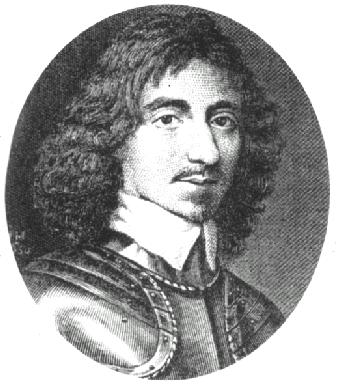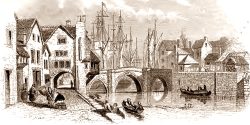These shorter extracts from pamphlets relating to the 1645 storm of Bridgwater detail the towns defences. Fuller transcriptions will be added when we can.

Sir Thomas Fairfax’s LETTER to the honourable William Lenthall Esq. Speaker of the House of Commons, 8pm, July 23rd 1645
I dispatched hench letters yesterday to the committee of both kingdoms, which gave some account of God’s blessing upon our endeavours, in the Storm of Bridgwater: on Monday morning last, we gained that part of the town which lies on this side of the river, and therein 600 prisoners, divers officers of quality, and two pieces of ordinance: the enemy fired that part of the town, wherein we were immediately after our entrance, which continuing all that day, and the next night, burned down all the houses, except two or three. Yesterday perceiving an obstinate resolution in the enemy not to yield the town, I was forced to use those extremities for the Reducing of it, which brought them immediately to a parlay, and in store to yield the town, upon no other terms other than bare quarter: we entered the town this day.
Terms Explained:
- ‘We gained that part of the town which lies on this side of the river’ This is Eastover.
- ‘Two pieces of Ordinance’ Two Cannon
- ‘The enemy fired that part of the town’ Once the Parliamentarians had taken Eastover it was set on fire by the Royalists who were on the west of the river.
- ‘I was forced to use those extremities for the Reducing of it’ He fired his cannon into the town on the west of the river and set fire to it.
A Fuller RELATION from Bridgwater since the last Fight: by a worthy Gentleman in Sir Thomas Fairfax his army. 12 midnight July 22nd 1645
For this morning, July 21st about two o clock, the General’s regiment began the storm, being seconded by others, and gave not over till they were atop of the works with their colours, and gained the pieces that plaid upon them, and ley down the Bridge: whereupon Captain Reynolds a valiant young gentleman, entered with a folorn hope of horse, scoured the streets and beat them out of the higher town into the further… We lost not twenty men in the storm…with Granadoes and other things, they fired that part of the town we were in, and hardly left three houses standing… 1st July 22. Tuesday… the governor let all the women and children come out of the town… this being done our great guns and mortar pieces with fireballs, hot irons etc, plain against the town, and instantly fired it in three places the wind being great increased the fire… The works of the town are as strong as any in England, the most deep, yet our foot waded through, all the [siege] bridges failing but one, and so got over. It was about 30 foot wide.
Terms Explained:
- ‘atop the works’ meaning the defences of the town, large earthen ramparts, which stretched all the way around it.
- ‘Colours’ Flags
- ‘gained the pieces that plaid upon them’ They took the cannon which had been used against them, turned them round and fired them on the royalists.
- ‘ley down the bridge’ This is the bridge of the East Gate which stretched accross the defensive ditch. The ditch had been widen during the war to about thirty feet and the bridge would have been specially constructed.
- ‘folorn hope of horse’ Once the foot troops had forced opened the gate the Parliamentarian Cavalry charged through it.
- ‘higher town’ Bridgwater west of the river.
- ‘yet our foot waded through’ the defensive ditch of the town was evidently wide (thirty foot), but it seems not that deep.
Sir Thomas Fairfax’s ENTERING Bridgwater by Storming on Monday Last, July 25th 1645
It seems the soldiers in the town would have Mr. Harvey’s house pulled down, fearing lest in case they should lose that side of the town, they might be prejudiced by it, for it commands the town, and the market place, but Mr. Harvey being there himself, and bearing so great a sway amongst them, he procured leave that it might stand; the soliders then propounded that some sconces might be made for the securing of the Castle and the market place, in case they should enter that part of the town.
This town of Bridgwater is divided by a River into two parts, one of which we have taken, and the other enemy still keeps, but we hope by tomorrow night at the farthest to gain that… Their Fort Royal, which we have taken, with all this part of the town… the enemy being terribly astonished at our approach into the town, there being in the castle many considerable men, as knights etcetera.
I cannot tell you what the enemy will do with us in Bridgwater, whether capitulate presently, or break them into the castle and stand upon some terms… [We have] The great Fort Royal on the North side of the town. The enemy still have the castle, but a very weak one.
Terms Explained:
- ‘Mr. Harvey’s house’ Harvey was the Lord of Bridgwater Castle and owned about a third of the property in the town. At the start of the war he was expelled from the castle so the governor of the town, Colonel Wyndham, could live there. Harvey would be paid a rent for this and given the castle back at the end of the war. The house referred to here is his smaller townhouse, probably built as a guest house or for his sons to live in. It was located on the north side of Eastover, right next to the bridge just before the road which is now called East Quay. There is nothing there today and the foundations presumably lie beneath the pavement.
- ‘Market Place’ Cornhill.
- ‘Sconces’ Small artillery batteries. These would have been a series of wicker structes filled with stones and earth.
- ‘Castle’ The old medieval castle which Henry Harvey had converted into a relatively defenceless manor house. This was used as a command centre, a stores and accomodation for Wyndham.
- ‘divided by a river into two parts, one of which we have taken’ This refers to Eastover.
- ‘The Great Fort Royal’ This would have been a large fort detached from the town . Its location has been lost, but would have defended the main approach to Bridgwater from the North, probably along what is now Monmouth Street or in Castle Fields. George Parker in 1877 recalled: ‘on the east end of the town, near where Barclay Street stands, were very high mounds of earth, in which were removed for building purposes, the workmen found human bones, bullets, swords, and other military weapons‘.
Great Victories Sir Thomas Fairfax’s taking of Bridgwater, and the Castle, and all their works and holds therein. 22nd July 1645
Mr Harvey’s house taken, and the royal fort, and all that side of the town works and ordinances on Monday last. The bridge taken on Tuesday with the marketplace, the castle and all the rest of the town.
